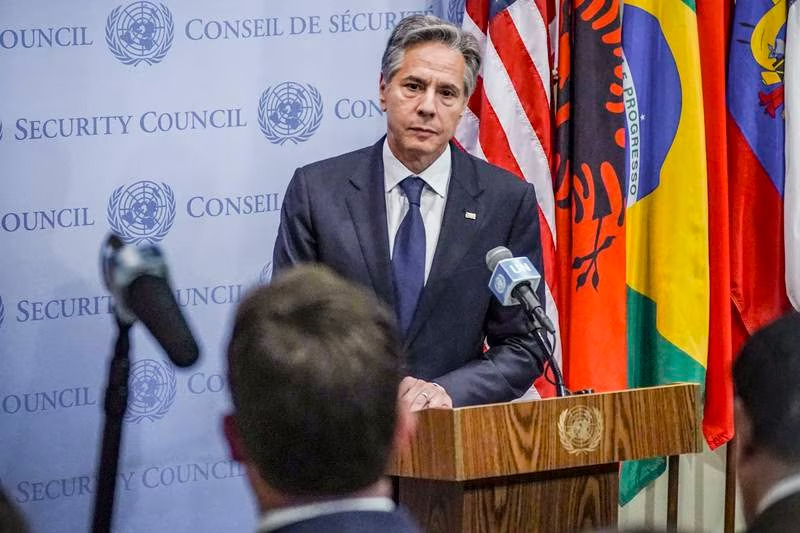US Secretary of State Antony Blinken on Thursday said he expects Wang Yi, the recently reappointed Chinese Foreign Minister, to visit the US, after Washington extended a formal invitation earlier in the week.
The invitation was earlier extended to Wang Yi’s predecessor, Qin Gang, who was removed after only seven months in the position.
Mr Qin has not been seen publicly since late June.
“We fully expect Chinese counterparts to come to the United States,” Mr Blinken said.
“There is an obligation that both the United States and China responsibly manage this relationship, and that starts with talking, including dealing directly with our very serious differences.”
Mr Blinken, who was in New York chairing a high-level UN meeting on global food insecurity at the Security Council, told reporters that even though China has not responded yet to the invitation, it was important to meet to find areas for co-operation that would benefit many people around the world.
He met Mr Qin during his visit to China on June 18, and Mr Wang before his recent appointment, on the sidelines of the Association of South-East Asian Nations Summit in Indonesia in July.
Ties between the countries soured this year after Washington accused Beijing of flying a high-altitude spy balloon over US territory.
But Beijing maintained that the aircraft was a weather balloon that had strayed off course. Tension escalated further when US forces shot down the balloon.
Mr Blinken’s comments also come after federal prosecutors announced two American sailors have been accused of passing sensitive information to China.
One service member allegedly received bribes from the Chinese operative in return for “surreptitiously recording and then transmitting to the intelligence officer US military information, photographs and videos”, according to the indictment.
The other sailor also allegedly provided photographs and videos of the ship he served on to a Chinese intelligence officer.
The world’s two largest economies have also found themselves in disagreement over various matters.
They include trade, the status of Taiwan, China’s territorial claims in the South China Sea, and the continuing US efforts to counter expanding Chinese influence in the Asia-Pacific region.
Source : TheNationalNews

